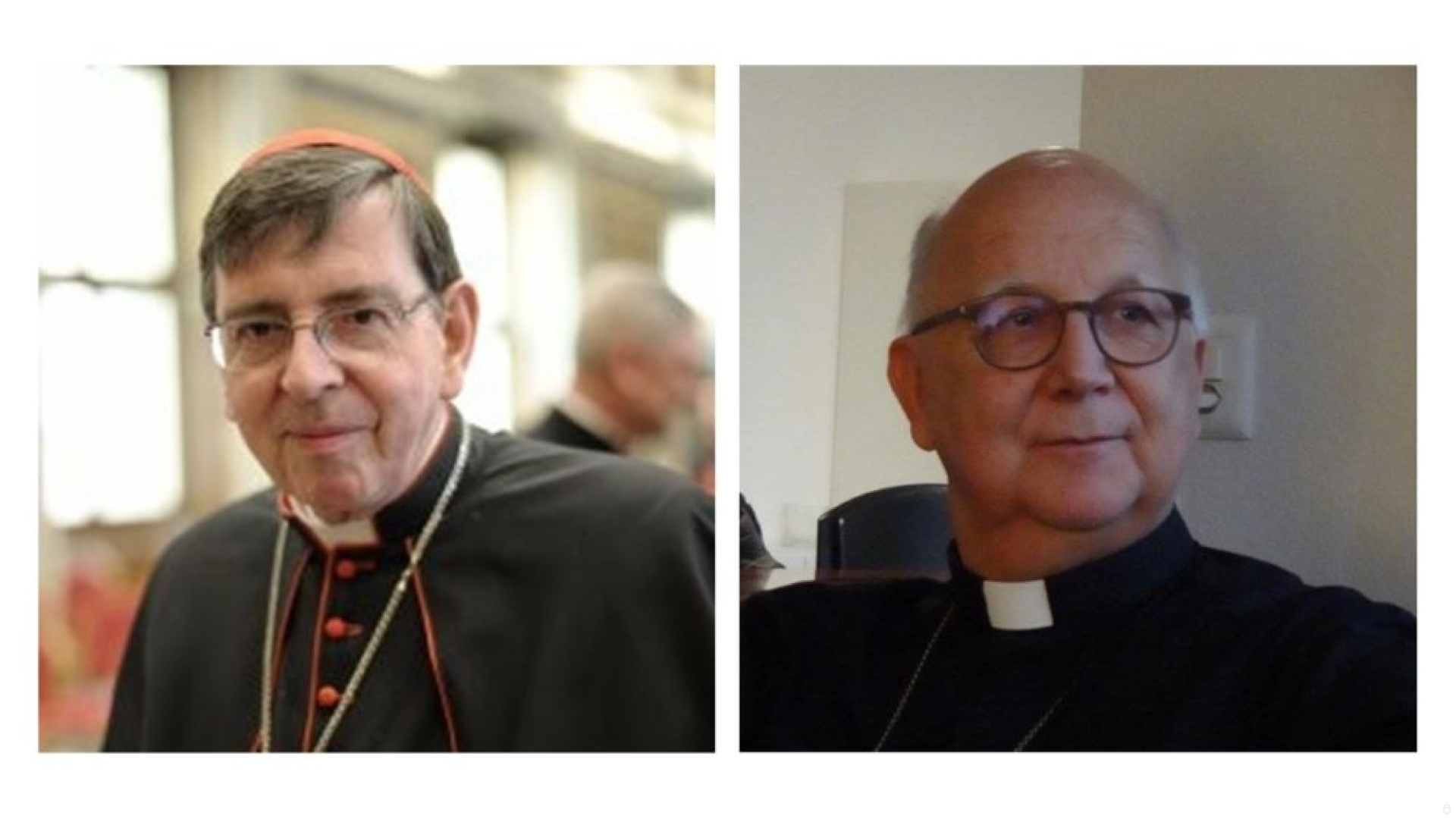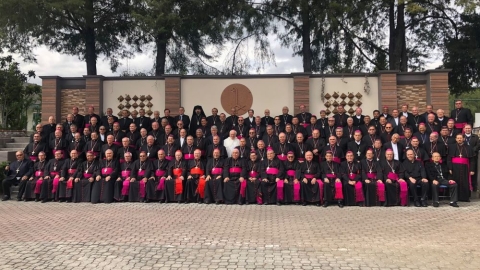Switzerland: Bishop Eleganti Criticizes the Latest Ecumenical Document

Cardinal Kurt Koch and Bishop Marian Eleganti
The Dicastery for Promoting Christian Unity, presided over by Cardinal Kurt Koch, former Bishop of Basel, recently published a long text titled “The Bishop of Rome,” which “surveys the ongoing ecumenical dialogue concerning the role of the Pope and the exercise of the Petrine Ministry,” as Vatican News presents it.
Bishop Marian Eleganti, former Auxiliary Bishop of the Diocese of Chur who served with Bishop Vitus Huonder, sharply criticized this text, which attracted an “Open Letter from Cardinal Koch,” visibly quite affected. Bishop Eleganti then produced a response to this letter. This summary gives an overview of the exchange, in which the former Auxiliary of Chur shows himself to be incisive and interesting.
Bishop Eleganti’s Criticism
The retired Bishop notes that the doctrine of the Church has clarified the Petrine Ministry—the Pope’s own ministry—and the outcome is the definition of Vatican I. Taking aim at the text, which proposes a return to an ancient practice of primacy, Bishop Eleganti quite rightly replies “that we cannot regress from the declarations of the First Vatican Council to the supposedly simpler preliminary stages.”
He notes that “this raises the fundamental question of the true Church and its indivisibility,” founded on Peter. The rest is unexpected: “Vatican II responded to this question with the ‘subsistit in’. [...] The Council fathers were convinced that the Roman Catholic Church is the plenary form of the Church of Christ (existit), but they semantically blurred this irreducible claim (subsistit).”
“Today, there is a new attempt to question the doctrinal development and the theology of ministries, in particular the Petrine Ministry and its exercise,” he continues. “A ministry of unity is desired, but in a synodal way, by majority, and is only obligatory if the majority of participants (i.e., all Christians) have decided in this way.”
“In conclusion,” the former auxiliary bishop affirms, “I think that is is not possible to form the Church with Christians separated in this discursive and synodal way, even if we did have not succeeded in finding a common ground with them in the past, due to distortions that they suffered.”
He then mentions ecumenism: “Ecumenism in return is refused [the conversion of non-Catholics], although the truth demands it. We could also talk about reunification. But this must be done in truth and not by a form of honorary primacy of the Pope to mask a de facto separation on a jurisdictional, ecclesiological, and dogmatic level.”
The conclusion is clear: “No, the path proposed by the new document is a sui generis ‘mirage’ which leads to chaos or which ratifies what already exists.”
Cardinal Koch’s Open Letter to Bishop Eleganti
The Swiss cardinal, who was a very progressive theologian in his youth—with theses bordering on heresy—before settling down somewhat as Bishop of Basel, became upset. He protests that the published document is only a “study text which offers a synthesis of the responses given by various Christian Churches to the encyclical Ut unum sint,” and not a doctrinal text.
He accuses Bishop Eleganti of oversimplification and takes offense that he attacks Vatican II on “subsistit in.” But his defense remains very weak before the accusation of wanting to relativize Vatican I: “The document proposes, on the contrary, that the Catholic Church seeks, regarding Vatican I, new forms of expression and a new vocabulary, but which remain faithful to the initial intention,” a form of confession.
He then takes up the distinction made by John Paul II in his encyclical Ut unum sint betweeen “the nature of the primacy and the concrete form of its exercise.” He concludes by advising his interlocutor “to study the subject in depth before publishing,” while ensuring that he is “in agreement with much of what he wrote” in his statement.
A Brief Reply to the Open Letter
Bishop Eleganti reacted to this missive of Cardinal Koch, and he took the opportunity to drive the point home. He affirms that “the proposals of the document The Bishop of Rome from the Dicastery presided over by Cardinal Kurt Koch aim explicitly to reinterpret the teaching of the First Vatican Council on the universal jurisdictional primacy of the Pope.”
The bishop continues: it seems that “the teachings of the Council are determined by their historical context and must be updated: new expressions and a new vocabulary, which remain faithful to the initial intention of the First Vatican Council. It would be a matter of a new constitution [sic] of the papacy in ecumenical coexistence,” he points out with irony.
“It is foreseeable that separated Christians will not accept direct jurisdiction from the Pope in the future. Otherwise, why would they propose a Catholic reinterpretation of pontifical primacy?” he asks logically. He then asks a question: “What then can result from these efforts at dialogue if not, at most, an honorary primacy of the ‘Bishop of Rome’ over the others, without direct authority over them?”
And he opposes Vatican I: “We teach and declare that, according to the testimonies of the Gospel, a primacy of jurisdiction over the whole Church of God was directly and immediately promised to the blessed apostle Peter and was transmitted to him by Christ the Lord. [...] He who occupies the Chair of Peter therefore obtains, through the institution of Christ Himself, the primacy of Peter over the whole Church.”
An exchange which highlights the former auxiliary of Bishop Huonder and which confirms his desire to remain faithful to his Catholic Faith. Incidentally, he was one of the first to react with indignation against Fiducia supplicans.
(Sources : Swiss-cath.ch/Marian-Eleganti.ch – FSSPX.Actualités)
Illustration 1 : vatican.va
Illustration 2 : Marian-Eleganti.ch





